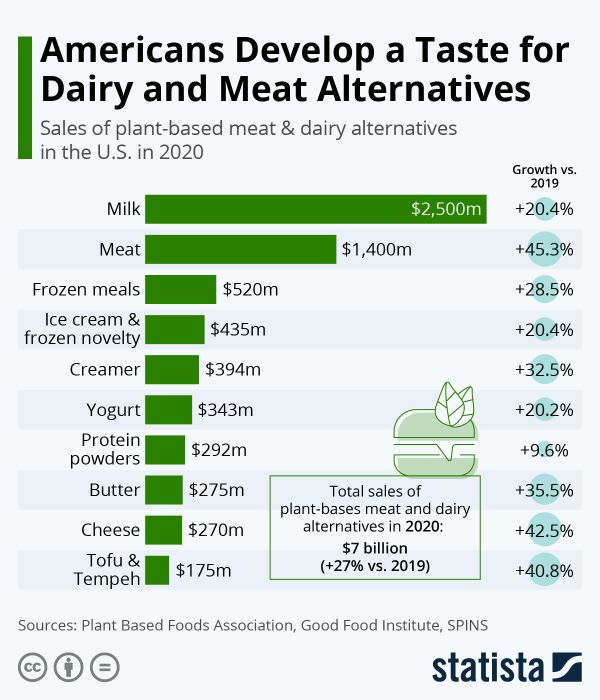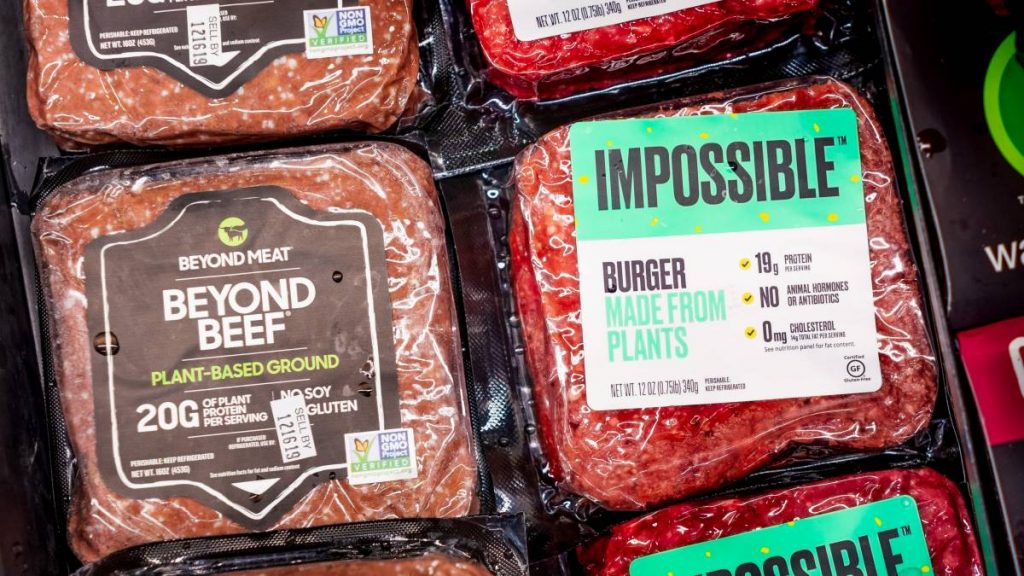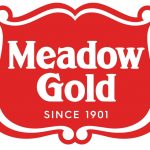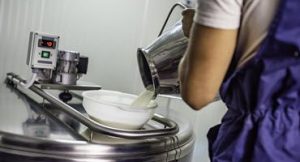
Purchases of milk alternatives such as almond milk, soy milk, and oat milk increased 20% in 2020 compared to the previous year with total sales of $2.5 billion. Sales of meat alternatives rose 45% in 2020 compared to 2019 with total sales at $1.4 billion. Other alternatives are on the rise as well, from plant-based ice cream to plant-based cheese.

There are a number of reasons why people might reduce the amount of meat and dairy in their diets. These include health benefits, cutting carbon emissions, allergies, and animal welfare issues.
Good for the Planet
Raising cattle, sheep, pork, and poultry for consumption uses a great deal of land, requires enormous amounts of water, and produces literal tons of greenhouse gas emissions. Most sources indicate that raising cattle consumes the most water and produces the most emissions.
Cows and goats are our primary milk producers and so milk, cheese, yogurt, and other dairy products raise similar environmental issues. Oat and almond milk are reported to produce fewer greenhouse gas emissions than soy or rice milk, but almond milk has a higher water footprint than the other three.
Reducing or cutting meat and dairy out of your diet will result in a lower food carbon footprint.
Good for You
Meat and dairy alternatives are often better for you than their traditional counterparts. Legumes, nuts, and seeds are staples of vegetarian fare and are the conventional base for processed meat alternatives. Meat alternatives made from these ingredients are much lower in saturated fat and contain fewer calories than burgers, bacon, chicken wings, or lamb chops. Dairy product alternatives are often made with cashews, almonds, soy, or oats. Most of them contain fewer calories and saturated fats than cow’s milk, but they also tend to contain less protein.
Making the Switch
Eating less meat and dairy does not need to be an all-or-nothing endeavor. Being semi-vegetarian or sometimes-dairy-free is just fine. You might try to cut meat out of one meal a day, working up to meatless breakfasts and lunches. You could also just start with Meatless Mondays, turning to vegetarian options for just one day a week or even only Monday’s dinner. Using milk and cheese alternatives in these same rhythms works just as well. There are no real rules and you can make up your own! Cutting out any meat and dairy will benefit both your health and the planet.
Increased Meat-free and Dairy-free Options
When looking to reduce your meat and dairy consumption, you have many more options than vegetarians and dairy-free eaters did a decade ago. There are always the staples: legumes, nuts, and seeds (be sure to check out the cashew bechamel recipe). But there is also a wide range of products that nearly replicate the taste and texture of meat and milk. Impossible Burgers are available in most Burger Kings and plant-based chicken nuggets are found in nearly every grocery store’s frozen aisle. Another company that offers meatless options, Before the Butcher makes a variety of soy-based beef, chicken, and pork alternatives to help meat lovers reduce their carbon footprint. Many supermarkets now carry dairy-free cheeses and an increasing number of plant-based milk products are available.
As more people get on board to reduce their foodprint, we can expect to see continued growth in the variety of plant-based meat and dairy products in supermarket aisles.

























